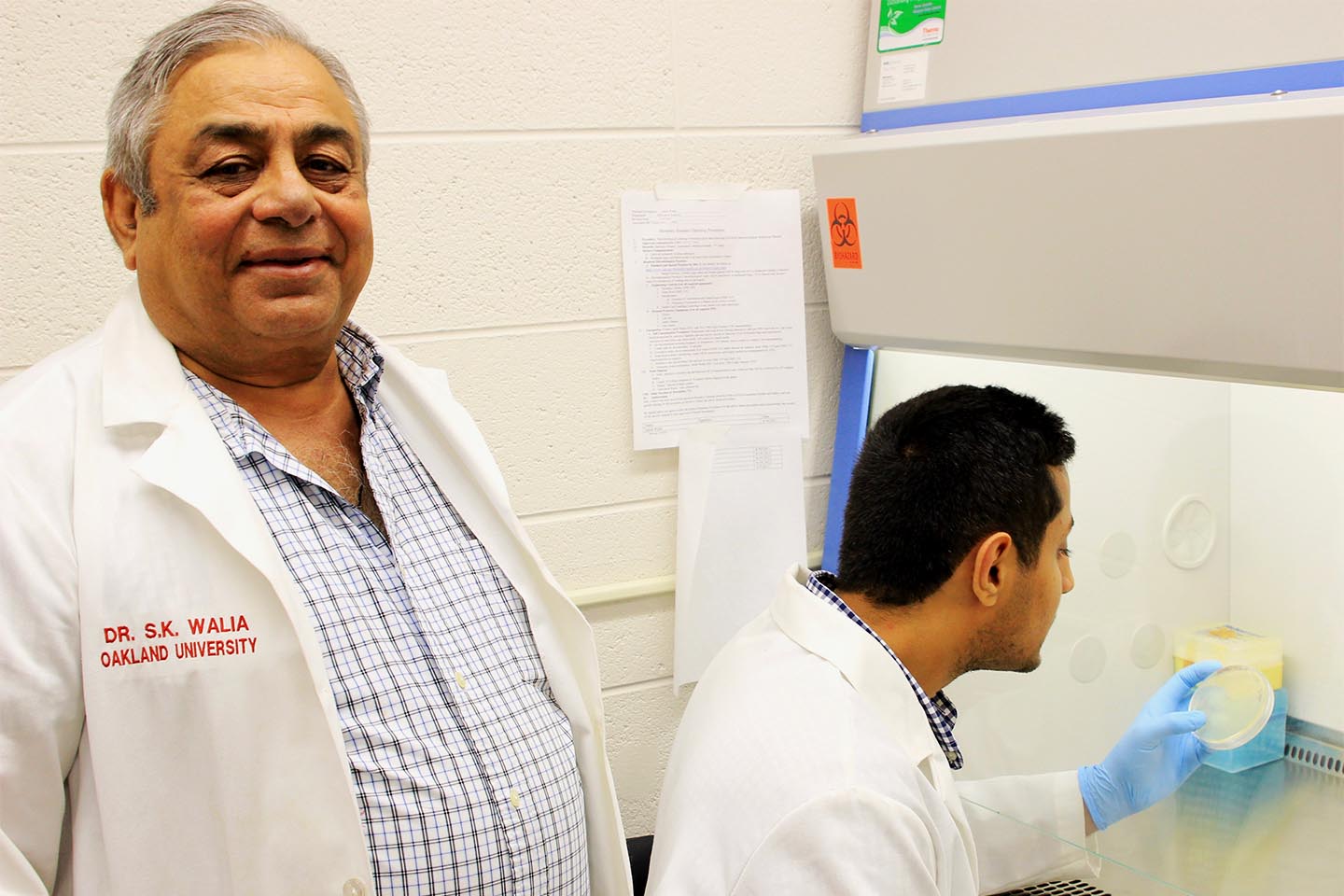OU professor’s research focuses on deadly antibiotic-resistant bacteria

Each year, at least 2 million people in the United States become infected with bacteria that are resistant to antibiotics and at least 23,000 people die each year as a direct result of those infections, according to the Centers for Disease Control and Prevention.
“It’s a real problem,” said Dr. Satish Walia, an associate professor of biological sciences at Oakland University.
Walia has been studying the presence of antibiotic-resistant bacteria in hospital wastewater and local waterways, including the Clinton River. He has been invited to share his research at the 7th International Symposium on Energy, which will take place Aug. 13-17 in Manchester, England.
“An invitation to the Symposium is a great honor, and this is definitely an issue that deserves some attention,” Walia said.
According to the World Health Organization, antibiotic resistance occurs when bacteria change in response to the use of medicines to prevent and treat bacterial infections. These bacteria may infect humans and animals, and the infections they cause are harder to treat than those caused by non-resistant bacteria.
“It’s an environmental and public health hazard,” Walia said.
In 2013, the CDC published a report outlining the top 18 drug-resistant threats in the United States, including Clostridium difficile (C. difficile), antibiotic-resistant bacteria that causes life-threatening diarrhea. It has been identified as an “urgent threat” by the CDC and linked to more than 15,000 deaths.
“Antibiotic-resistant bacteria can cause infections that can be more difficult, sometimes impossible, to treat,” Walia said.
According to Walia, studies have shown that hospitals are the major antibiotic consumers and thus facilitate the spread of antibiotic resistance.
“Hospital wastewaters definitely play an important role in the evolution and dissemination of antibiotic-resistant genes,” he said.
In a recent study, Walia and Chithra Murleedham, a former graduate student, evaluated the occurrence of three common groups of Extended Spectrum Beta-Lactamase (ESBL) – an enzyme made by some bacteria that prevents certain antibiotics from being able to kill the bacteria – in samples of hospital wastewater, as well as water from the Clinton River.
“A total of 156 bacteria were isolated upstream and downstream of the hospital’s wastewater treatment plant,” Walia said. “Of these 156 bacteria, 34 (approximately 22 percent) were found to be ESBL-producing bacteria.”
Similar amounts of ESBL were found in samples taken from the Clinton River, as well.
“I didn’t expect that,” Walia said. “We were using the Clinton River as a control, but the quantity of antibiotic-resistant genes we found there was almost the same as the quantity we found in the hospital wastewater.”
Walia said he’s eager to share the results of his research at the 7th International Symposium on Energy next month.
“There’s more to this story than our eyes can see,” he said. “It’s my hope that we can educate people about antibiotic resistance before something even more serious happens.”
